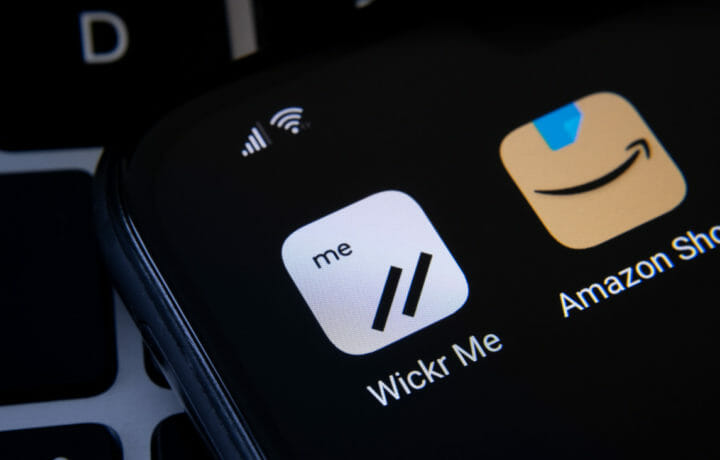According to a report from Vice Media’s Motherboard, In-Q-Tel, a nonprofit investment firm that was started by the CIA, recently made a $1.6 million transfer to the encrypted messaging platform Wickr. In-Q-Tel was established in 1999 as an organization “to help the CIA and broader U.S. Intelligence Community (IC) identify, adapt, and deliver cutting-edge technologies that address national security needs.”
The transfer from In-Q-Tel, which reportedly occurred before Amazon purchased the company, also followed last year’s contract from the United States Air Force for Wickr to provide its recall, alert and messaging app (Wickr RAM) throughout the U.S. DoD.
With that contract from July 2020, Wickr would extend its services across all three major DoD departments, while expanding to provide secure communications for the Army, Navy, Marine Corps, and Air Force with encrypted file, video, chat, text and voice services for end-users.
“Providing secure communications to the tactical edge and higher on government & personal devices for data up to IL4 FOUO to include PII & PHI is greatly improving situational awareness and enabling commanders to have more complete decision making data,” Dan Skinner, head of federal operations at Wickr, said at the time the deal was announced.
Imperative Criteria
To meet the DoD security requirements, Wickr RAM utilized full administration and compliance controls. The Air Force contract named Wickr RAM as a DoD approved Federal Information Processing Standards (FIPS) certified application suite, and additionally a Federal Risk and Authorization Management Program (FedRAMP) certified. Those were imperative criteria to consider when selecting a collaboration service that ensures the highest levels of security for nationally recognized government entities.
The company also noted that Wickr RAM, the self-hosted end-to-end encrypted collaboration platform designed for and accredited by the DoD, is also the only collaboration service with full functionality that was able to meet all security criteria of the National Security Agency (NSA). Wickr RAM is also an Air Force Cloud One and Air Force Special Operations Command cloud certified fully managed service provider.
In June 2021, Amazon Web Services (AWS) announced that it had acquired Wickr, but so far it seems that little has changed with the company.
“Wickr already has a decent community of users, and it is rare in that it is a U.S.-based end-to-end encryption platform,” said Dr. Vahid Behzadan, assistant professor at the Tagliatela College of Engineering at the University of New Haven
The CIA’s Investment
As Motherboard reported, it isn’t explicitly clear whether the $1.6 million paid to Wickr was for an investment in the company or for purchasing a specific product, however Behzadan told ClearanceJobs the latter is unlikely.
“While I’m not sure how the budget is allocated, I imagine it could be used to cover development and maintenance costs but not on the deployment side,” he explained.
As for how the CIA might employ the platform, Behzadan said it would likely be used to expand the way the agency connects with overseas assets. Those in the DoD and throughout the intelligence community (IC) may already use Wickr in an unofficial capacity, and while that has likely expanded since the Air Force’s contract, the CIA could use the end-to-end encryption platform to communication with its assets anywhere in the world.
“This is a way for them (the CIA) to enhance the communication with U.S. assets worldwide,” said Behzadan.
Off the Shelf Product
One question to ask is why the CIA – not to mention the NSA or Defense Intelligence Agency (DIA) – wouldn’t develop its own platform that isn’t so “off the shelf.” However, this could be where Wickr actually fills a void. Instead of agencies having to worry about incompatible platforms, Wickr RAM would be universally compatible, while it wouldn’t be overly conspicuous.
“Anyone and everyone can have access to it,” said Behzadan. “If someone is seen using it, that wouldn’t necessarily be a sign that they were working the intelligence community. More importantly it can used and accessed anywhere in the world, and it can be downloaded by anyone on any smartphone.”
The other question with an off-the-shelf program is whether its encryption would be strong enough for those CIA assets.
“Trusting encryption is a budgetary problem,” Behzadan told ClearanceJobs. “The question is how much budget is required – as in how much time and energy does it take. In the case of Wickr, it can be very costly to break, and that is why the CIA may be interested in it.”




